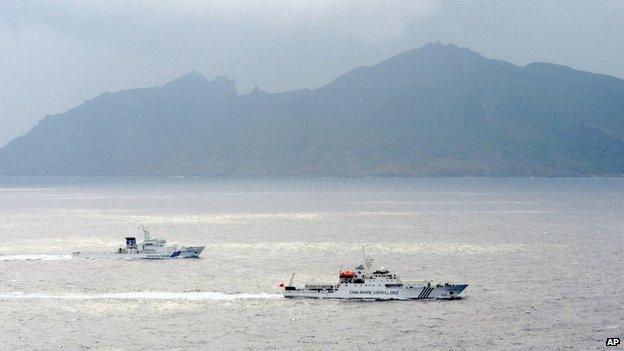Why a US-Japanese actress apologised to Chinese audiences
- Published
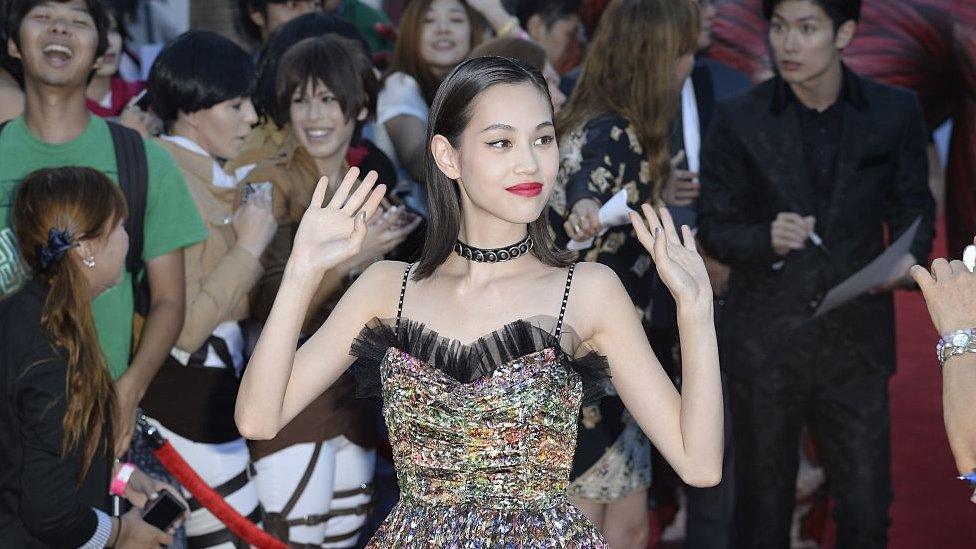
The alleged photos of Ms Mizuhara first came to prominence after reports that she was taking part in "No Other Love", a Chinese film directed by popular Chinese actress Zhao Wei
An American-Japanese actress has issued a video apology to Chinese fans, after being accused of being anti-Chinese.
Kiko Mizuhara had been criticised for liking a photo on social media deemed offensive to China and allegedly appearing in photos which some saw as glorifying Japan's military past.
Some had threatened to boycott her latest film in response.
Her five-minute video, posted on Weibo, is being widely discussed online, with many asking why she felt she had to do it.
What is this row about?
Criticism first arose after Mizuhara was named as a character in No Other Love, a Chinese romantic comedy directed by popular Chinese actress Zhao Wei.
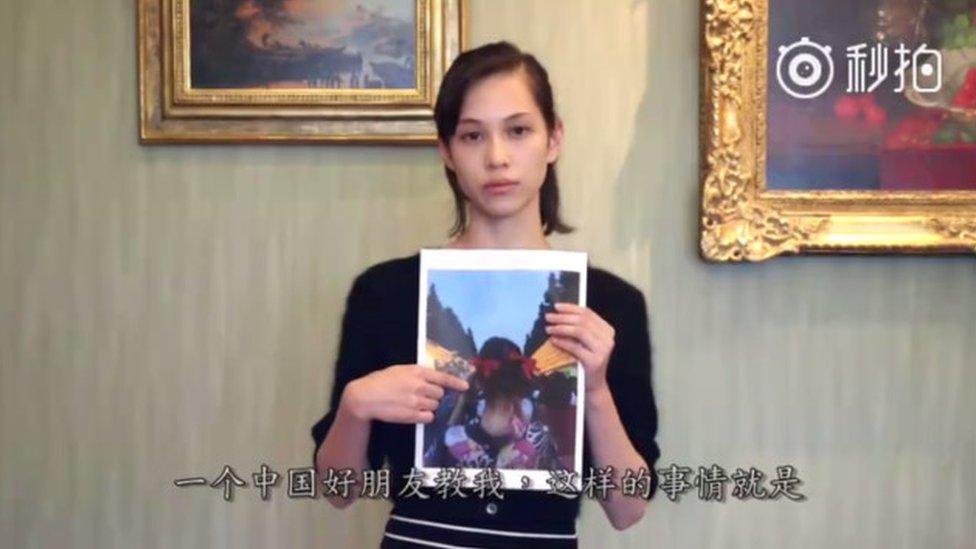
Ms Mizuhara clarified in a video that several pictures that surfaced online were not of her
A photo began circulating online, said to be of her, showing a woman at the controversial Yasukuni Shrine in Japan.
The shrine is seen in China as a symbol of Japanese militarism in World War Two, as it honours the war dead, including convicted war criminals.
Another image showed a woman posing in front of Japan's Rising Sun flag, a symbol of imperialism.
Mizuhara was also accused of "liking" an Instagram post from 2013, which appeared to be a picture by controversial artist Ai Weiwei of someone raising a finger to China's Tiananmen Square.
What did she say?
In her video on Friday, the actress said she wanted to "sincerely apologise" to everyone in China, but also "clarify a few things", including that the Yasukuni picture was "definitely not me".
She added: "I would like to confirm that I am not in the [flag] picture and that I am a supporter of peace."
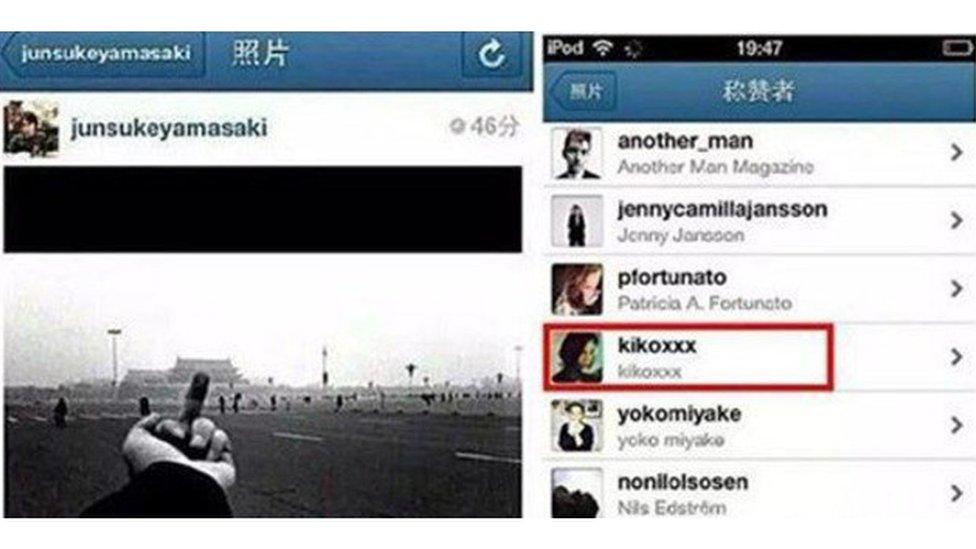
Ms Mizuhara liked a friend's post on picture-sharing site Instagram from 2013, which appeared to be a picture by controversial artist Ai Weiwei's starring China's Tiananmen square.
The Instagram like was a "regrettable incident", she said, but she had retracted it after she realised how inappropriate it was, saying that her friend too had deleted the photo.
She concluded by apologising in Mandarin and saying that "love and peace will bring us together and make the world a better place".
What has been the reaction?
The video , externalhas been shared more than 90,000 times on Weibo and received more than 140,000 comments, many noting how unhappy she looked.
The majority of the comments have been positive, some saying their "heart ached" watching it.
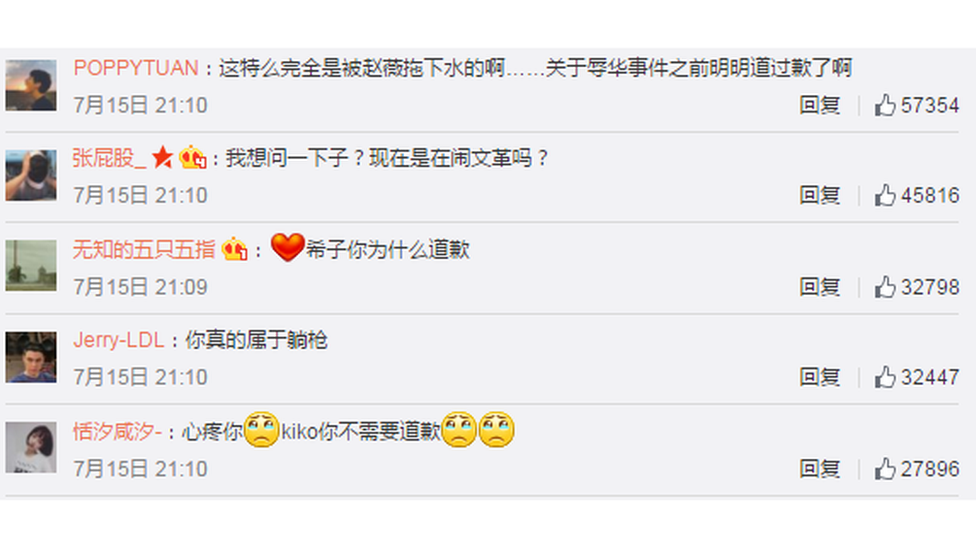
"Are we in the cultural revolution now?" and "My heart aches, Kiko you didn't have to apologise" are among some of the comments pictured here
"Are we in the Cultural Revolution now?" asked one user on Weibo.
"I want to let you know we believe in you. In my heart you are always a lovely and brave girl who shows great goodwill to our country China. We love you and apologise to you," said another comment.
Someone posting on Mizuhara's own Instagram account said: "I am a Chinese, but I think you [haven't done anything] wrong, believe me, no good person would blame you."
The apology also prompted Taiwanese and Hong Kongers to post mock "apologies" of their own in the "First Annual Apologise to China Contest" Facebook group.
"I'm sorry I use a Xiaomi phone, but use an Apple iOS," said one user.
"I'm sorry the sky is so blue," another commented.
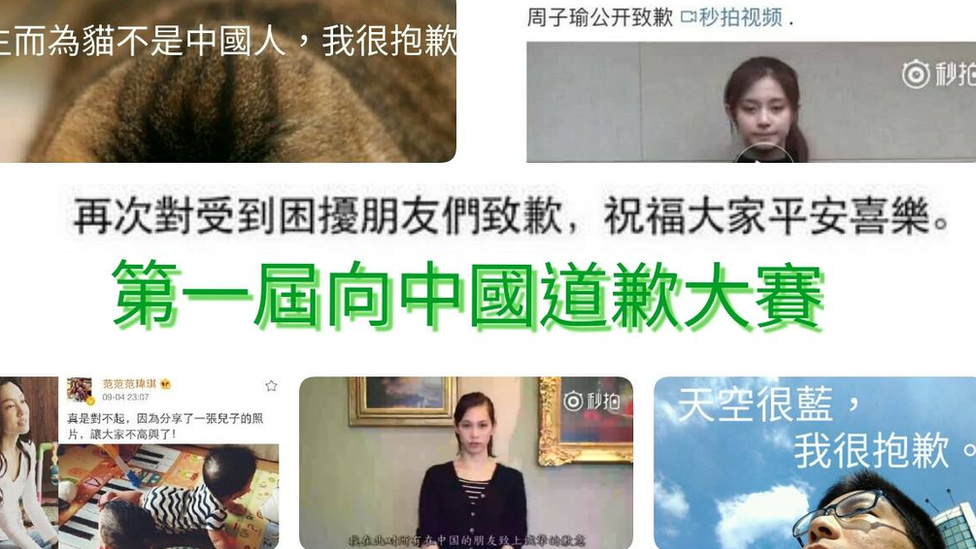
Ms Mizuhara and Chou Tzuyu are among the thumbails in the "Annual Apologise to China" contest banner
China and Japan's wartime history and ongoing territorial rows in the region have often led to a tense relationship, with nationalists on both sides seizing on seemingly trivial issues to make a point.
But others said Mizuhara was making herself out to be a victim, showing China to be a bully.
"Chinese netizens never asked her for an explanation or apology. Her doing this makes it seem like we're exercising our power," said another user. "We've never requested a foreigner to apologise."
Has this happened before?
No Other Love had already run into political trouble.
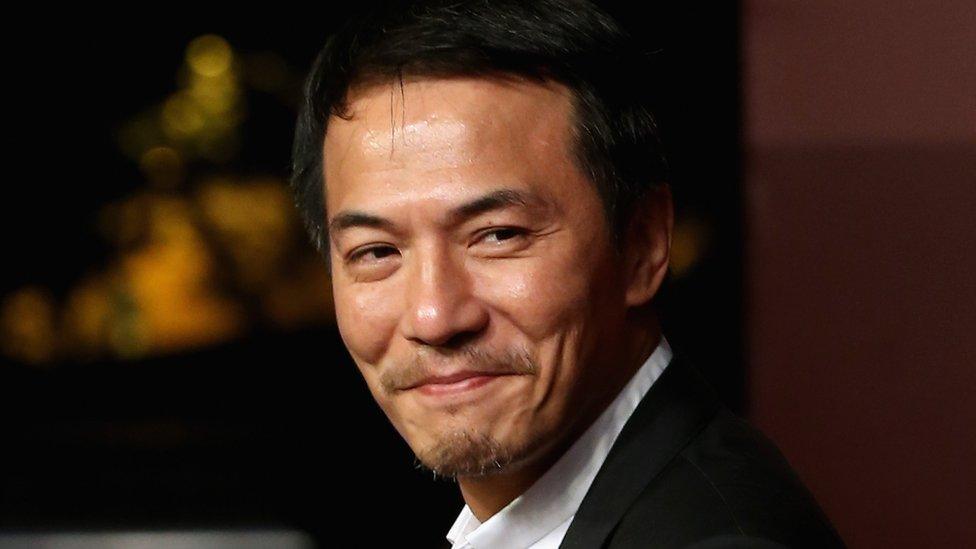
Mr Dai, who reportedly supported Hong Kong's pro-democracy Umbrella Movement and Taiwan's Sunflower movement, was replaced after he failed to clarify his political stance
The Communist Youth League had encouraged a boycott of the film, saying its Taiwanese star Leon Dai was a pro-Taiwanese independence.
China regards Taiwan as a breakaway province to eventually be reunited with the mainland.
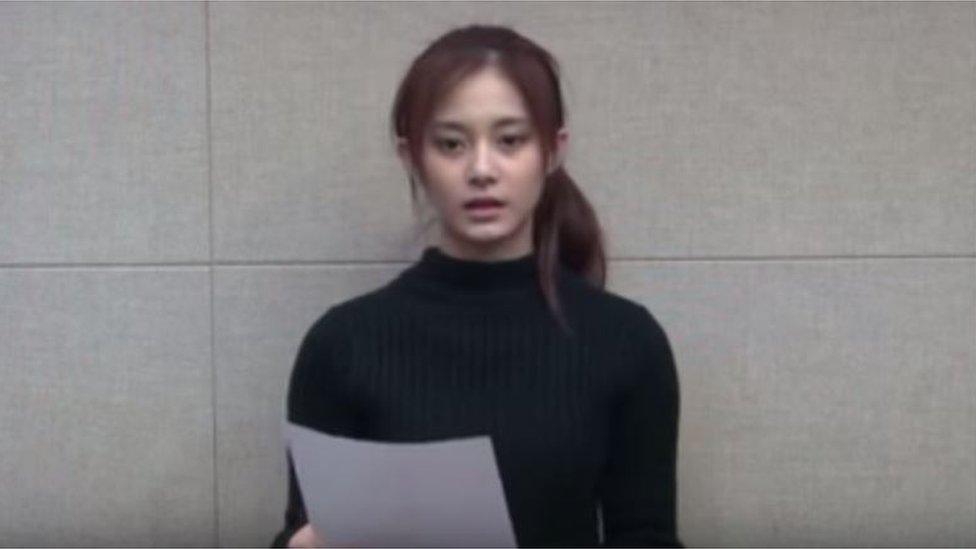
A similarly penitent apology was issued by Taiwanese teenage singer Chou Tzuyu earlier this year
Mr Dai, who reportedly supported Hong Kong's pro-democracy Umbrella Movement and Taiwan's Sunflower movement, was replaced after he failed to clarify his political stance.
The film's production team, external later released a statement saying they "dedicate themselves wholeheartedly to China. We are all Chinese and we firmly support the one China policy."
Earlier this year, a Taiwanese member of Korean pop group Twice apologised in an online video after she was seen holding a Taiwanese flag while performing.
Chou Tzuyu, 16, later apologised on YouTube, saying that there was only "one China" and that she felt ashamed of how she had behaved.
- Published6 June 2016
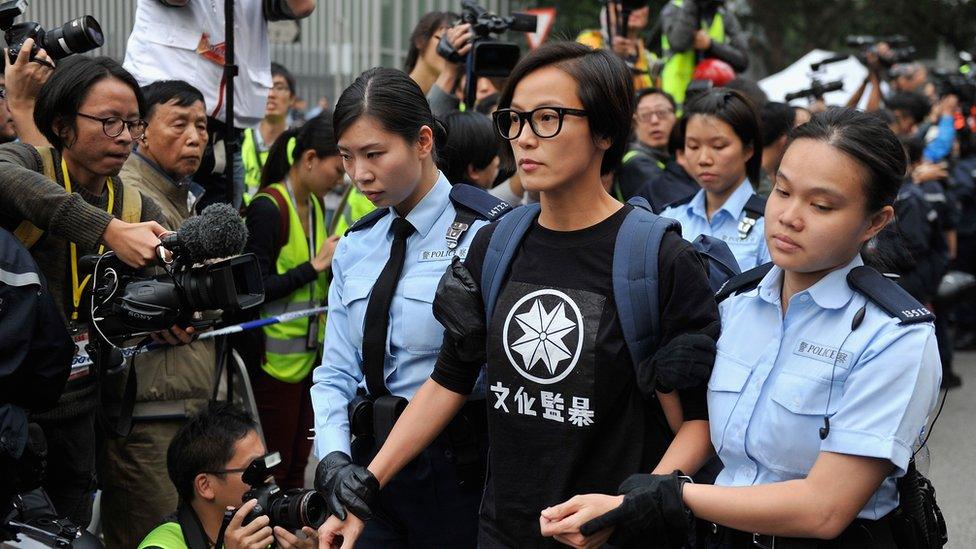
- Published28 June 2016
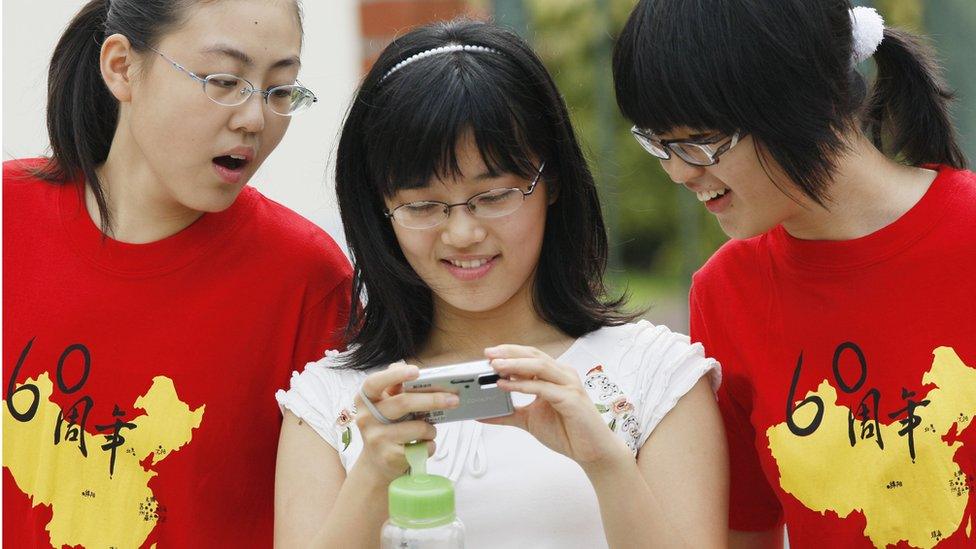
- Published18 January 2016
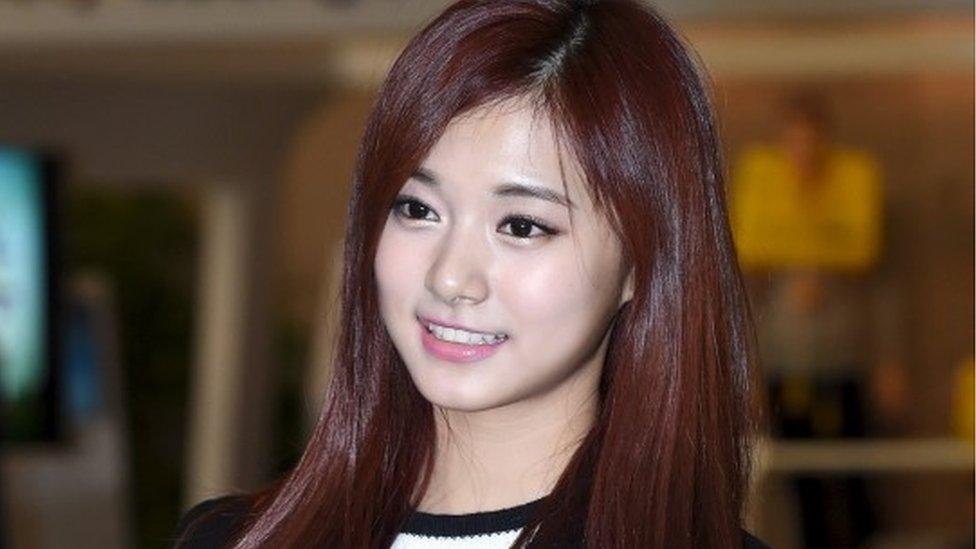
- Published10 November 2014
